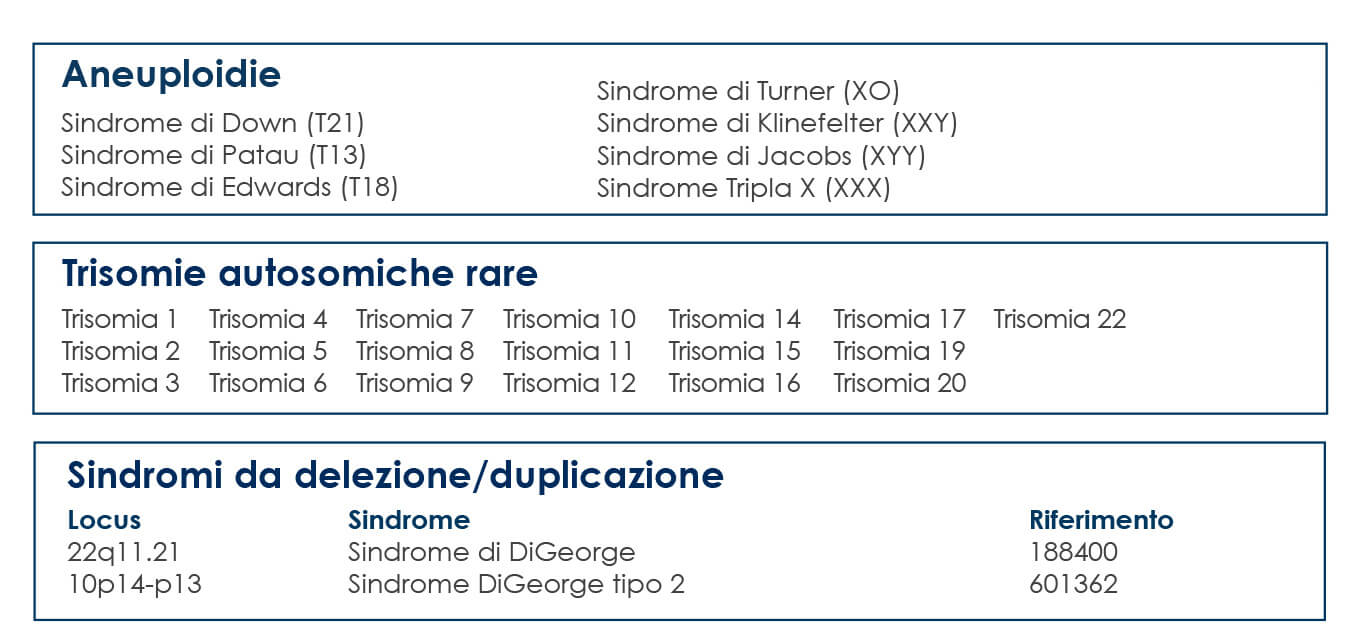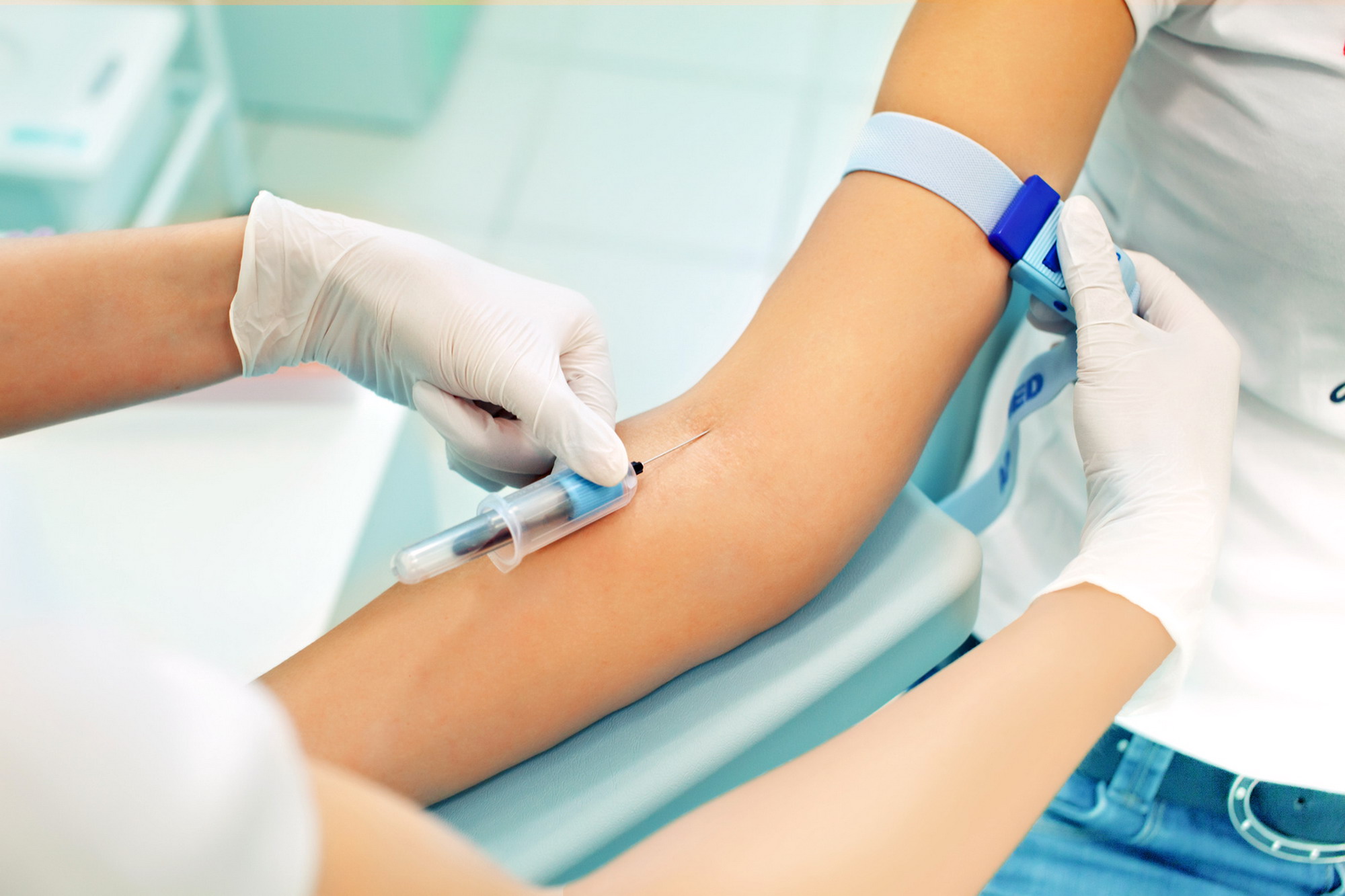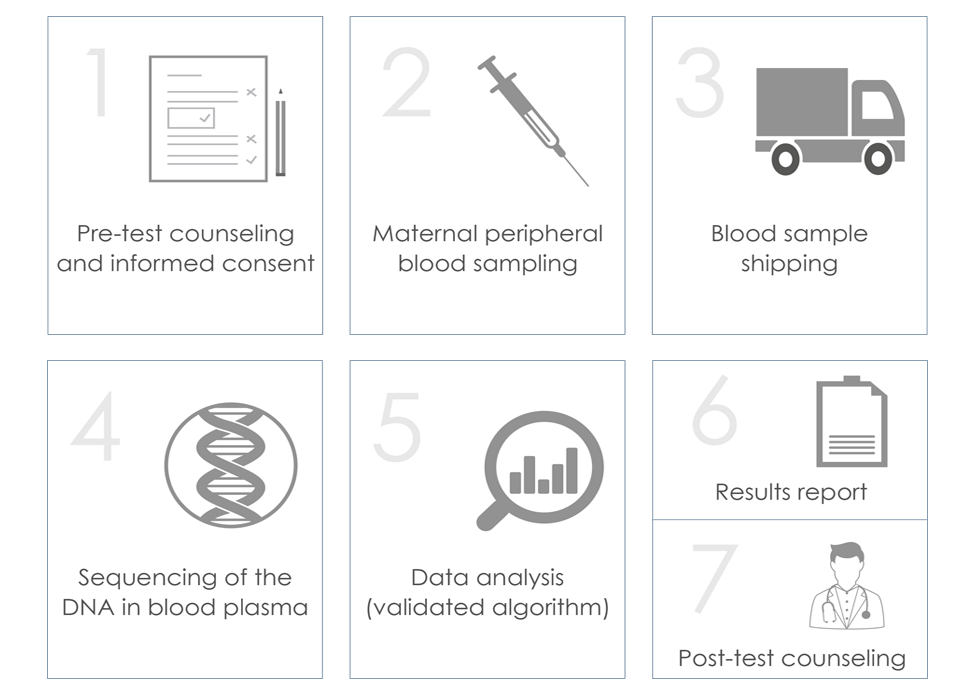ULTRANIPT DG boasts the largest study ever published regarding a prenatal screening test on fetal DNA.
The accuracy of ULTRANIPT DG was verified by comparing the results of tests performed on as many as 112,000 pregnant women with those who had prenatal (or at birth) diagnostic evaluations. No other test in the world can boast validation data based on such a large cohort. The data obtained confirmed the ability of the test to identify trisomies 21, 18 and 13 with a sensitivity of 99.17%, 98.24% and 100% respectively. The probability of a false positive result that emerged from the study was less than 0.05%; this ensures that the number of women who undergo unnecessary invasive diagnostic procedures is significantly reduced.
Chromosomal anomalies analyzed with the ULTRANIPT DG test


Indications
The UltraNIPT DG test is recommended in case of:
- Pregnancies in which invasive tests are proposed
- Pregnancies in which invasive testing is not proposed
- Single or twin pregnancies
- Single or twin pregnancy from assisted insemination (also from egg donation)
Advantages
- It is based on a simple maternal blood sample
- It can be performed starting from the 10th week of gestation
- Provides compensation in the event of failure to detect (*)
- It provides for a reimbursement of expenses for any in-depth diagnostic and/or genetic counseling (*)
Reliability
- A clinical study of over 146,958 women makes it by far the most validated fetal DNA test
- More than 5 million tests performed worldwide
- Sensitivity and specificity greater than 99% for trisomies 21, 18 and 13
- Sensitivity greater than 90% for the detection of deletions and duplications, even submicroscopic (up to 3Mb)
Quality assurance
The guarantee of reliability, coming from the widest case history in the world (more than 5 million tests performed), has made it possible for each pregnant woman who requests it, access to a free insurance policy (*). In case of failure to detect some aneuploidies, it is possible to receive compensation or, in the case of in-depth diagnostic and/or genetic counseling, a reimbursement of expenses.
(*) There are some restrictions. For more information, you can contact the Bioscience Institute before undergoing the test.

Procedure
The maternal peripheral blood sample required for the ULTRANIPT DG test is approximately 8 ml. The ULTRANIPT DG test can be performed starting from the 10th week of gestation (within the 24th) using the CE-IVD certified test tube provided in the collection and transport kit. The blood taken is transported in an isothermal kit for category B biological material, in compliance with the UN3373 standard..
Results management
Results are available in approximately 8 working days. It is important to point out that waiting periods may vary: the analysis involves a series of rigorous quality controls aimed at guaranteeing the reliability of the result; among these is the verification of the quantity of fetal DNA present in the blood sample, which varies from one pregnant woman to the other. In some cases, due to the low quantity of fetal DNA, it is necessary to repeat the analysis and/or blood sampling. If it is necessary to repeat the test due to the low concentration of fetal DNA in the maternal blood, the repeat will be free of charge.

Request UltraNIPT DG
The prenatal test with a more extensive and targeted level of screening
Contact Bioscience Institute to find the Center closest to you where you may book the G-Test®, or fill out the request form to be contacted without obligation by one of our trusted biologists.
(*) Required fields
References
• Zhang H, et al. Non-invasive prenatal testing for trisomies 21, 18 and 13: clinical experience from 146.958 pregnancies. Ultrasound Obstet Gynecol.2015 Jan 19.
• Chen S, et al. A method for noninvasive detection of large fetal deletions/duplications by low coverage massively parallel sequencing. Prenat Diagn.2013
• Liu et al. Performance evaluation of NIPT in detection of chromosomal copy number variants using low coverage whole genome sequencing of plasma DNA. Plos One, 2016
• Pan X, et al. Noninvasive fetal sex determination by maternal plasma sequencing and application X-linked disorder counseling. J.Matern Fetal Neonatal Med. 2014 Dec.
• Jiang et al. Noninvasive fetal Trisomy test: an advanced noninvasive prenatal diagnosis methodology for fetal and sex chromosomal aneuploidies. BMC Medical Genomics, 2012.


